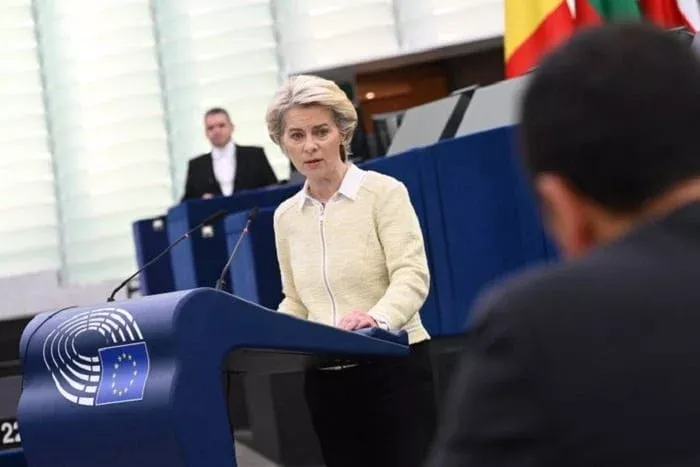The European Commission has proposed a total ban on Russian oil imports to the European Union.
This was proposed by European Commission President Ursula von der Leyen in a speech to the European parliament.
The new sanctions would include three major Russian banks being disconnected from the SWIFT international banking payment system.
What the EU is saying
Von der Leyen stated that Russian crude oil supplies would be blocked in six months and refined products would be banned by the end of the year, while acknowledging the need for more flexibility from nations such as Slovakia and Hungary.
“Let us be clear: it will not be easy.
“Some member states are strongly dependent on Russian oil. But we simply have to work on it. We now propose a ban on Russian oil. This will be a complete import ban on all Russian oil, seaborne and pipeline, crude and refined,” Von der Leyen said in a speech to the European parliament.
She added, “We will make sure that we phase out Russian oil in an orderly fashion, in a way that allows us and our partners to secure alternative supply routes and minimises the impact on global markets.”
Russian imports account for 25% of EU oil imports and are a major source of money for the Kremlin, but levels of reliance vary, and Slovakian and Hungarian ministers have already stated that they will seek exclusions from the measures.
The EU member states will need to adopt the sanctions package unanimously, and their representatives in Brussels have already begun poring through the specifics in the hopes of reaching an agreement by the end of the week.
What you should know
Von der Leyen stated that the panel is also asking that Sberbank, Russia’s largest bank, be isolated from the SWIFT international financial payment system.
According to the Financial Times, two more institutions, Credit Bank of Moscow and Russian Agricultural Bank, would be dropped from SWIFT.
The restrictions, which will need the support of all 27 EU member states are the latest in a series of western sanctions aimed at limiting the Kremlin’s capacity to wage war on Ukraine by targeting the Russian economy’s pillars.
According to the draft of the commission’s proposals seen by FT, Hungary and Slovakia are particularly reliant on Russian oil and will have until the end of 2023 to comply with the import embargo.
Brent oil climbed as much as 3.93% at the time of writing this article to a high of $109.10 a barrel after news of the EU move broke.




